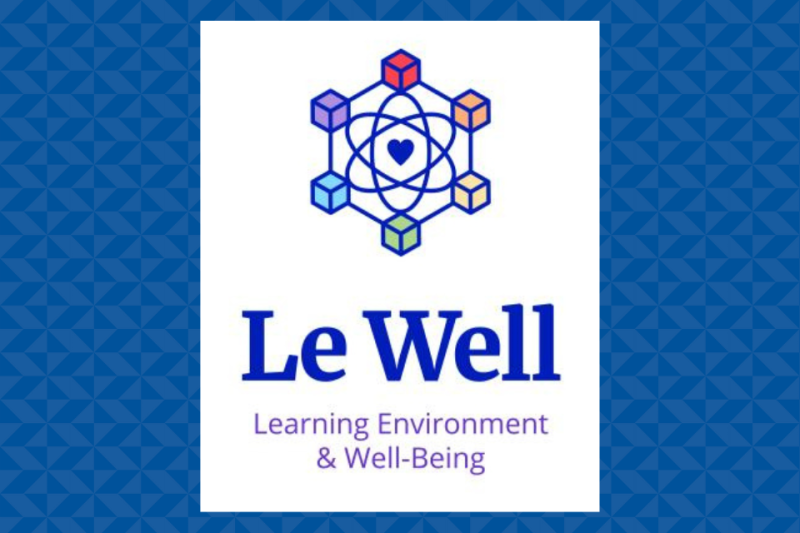
Thanks to a generous grant from The Duke Endowment, the Office of Le Well in the Duke University School of Medicine (SOM) will undertake a project designed to help students succeed and thrive in their clinical learning programs.
The Duke Endowment has awarded Le Well a two-year $500,000 grant to support a project, “Proactive Case Management: Meeting the Needs of Diverse Health Professions Learners to Ensure a Well-Prepared Health Workforce.” The project’s overarching aims include promoting learner wellbeing, decreasing clinical learner burnout, and improving health of patients served by those learners in the present and in the future.
The Office of Le Well, led by Jane Gagliardi, MD, MHS, and Melanie Bonner, PhD, provides centralized services to support SOM students and others in the healthcare learning environment. A guiding principle of the office is that all SOM students should have equitable and just access to support services provided by individuals who are not in a position to evaluate them and regardless of program, advisor, connections, or identity.
Le Well offers programming designed to decrease barriers to help-seeking, to promote learning support and health services, and to enhance a sense of community and belonging to students in all health professions education (HPE) programs.
The “Proactive Case Management” project is a two-year pilot designed to better meet individual students’ needs for mental health and learning support by offering individual meetings aimed at assessing the potential benefit of referral for health services, learning support, or other interventions, for all incoming students in HPE programs. A case manager will meet individually with each of the SOM’s matriculating HPE students to learn about strengths and opportunities for each student and to link them with resources available at Duke University and through the SOM.
In addition to facilitating connections between students and appropriate support services, meetings are expected to yield information to help Le Well discern themes and proactively identify additional resources, strategies, and programing of benefit to HPE students.
Bonner, the assistant dean for student services at the SOM and a professor of psychiatry and behavioral sciences, has provided proactive assessments and consultations to matriculating students in the Master of Biomedical Sciences over the last decade, where she has been able to implement individualized plans for students to promote their success.
“Sometimes students are unaware of the learning strategies needed for graduate school. More often, however, they are aware but hesitate to ask—perhaps for reason of shame or self-doubt—for the help they know has helped them succeed in the past. I have found that meeting individually with students to assess their needs and recommend a strategy of support helps decrease stigma while improving each student’s chance of success and thriving in a rigorous learning program.”
— Melanie Bonner, PhD
Gagliardi, the associate dean for learning environment and well-being at the SOM and a professor of psychiatry and behavioral sciences, also has experience developing strategies designed to decrease barriers and promote help-seeking. In 2017, she successfully collaborated with Duke’s Personal Assistance Service to create a proactive strategy for emotional wellbeing checks for trainees in a Duke graduate medical education program, with favorable feedback and high uptake.
“Recognizing there is no one-size-fits-all strategy for wellbeing or thriving, we hope to normalize help-seeking and promote our students’ ability to learn to take excellent care of their patients, their teams, and themselves now and into the future. We are extremely grateful to the Duke Endowment for their support, and we are eager to get to work proactively supporting our interprofessional and diversely talented HPE learners.”
— Jane Gagliardi, MD, MHS
HPE programs at Duke University SOM include the one-year Master of Biomedical Sciences (MBS) program; the two-year Pathologists’ Assistant program; the two-year Physician Assistant (PA) program; the three-year Doctor of Physical Therapy (DPT) and Occupational Therapy Doctorate (OTD) programs; the four-year Medical Doctorate (MD) program; and the Medical Scientist Training Program (MSTP).